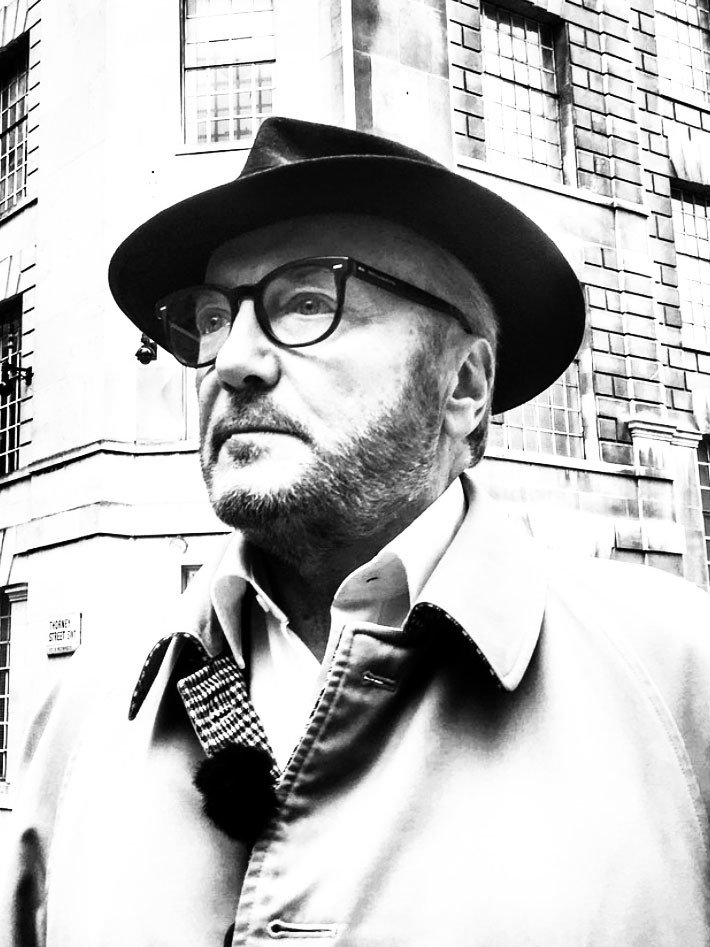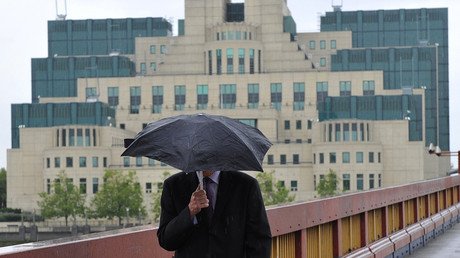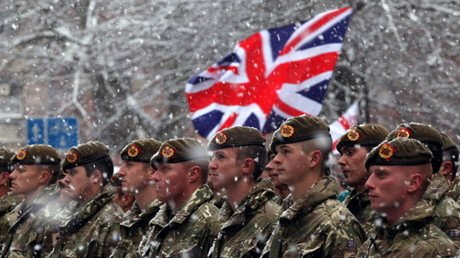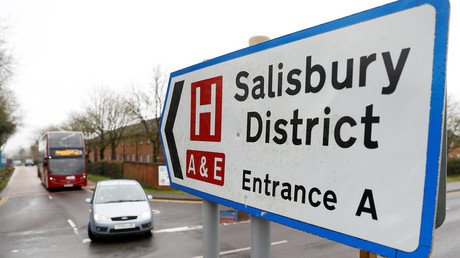Wilderness of mirrors: MI6, the Cold War, spies and traitors from Gordievsky to Skripal
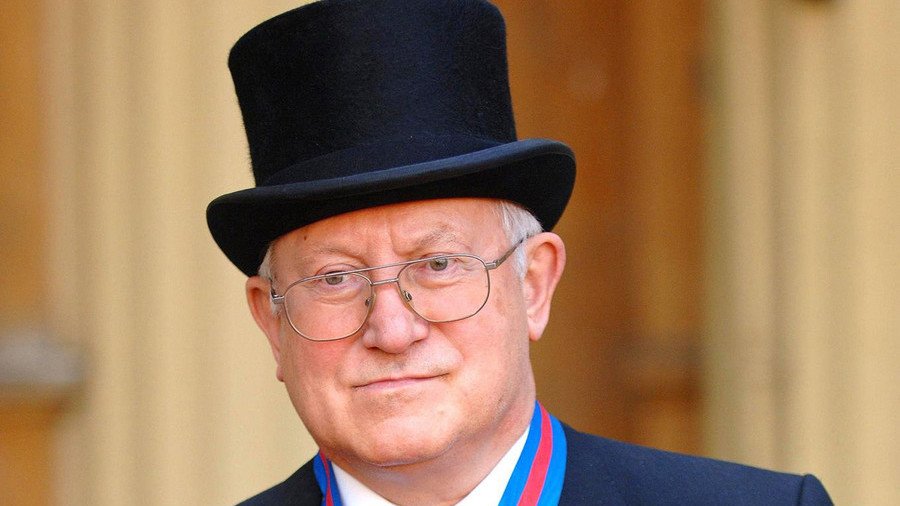
I knew the double agent Oleg Gordievsky though he evidently didn't know me, thank God.
I was rather junior at the time, it's true, but I grew up to be less so. The absence of my name in his ghost-written memoir officially penned by The Times' Ben Macintyre is evidence either of no post-facto additions to his photographically memorized perusal of Soviet secrets regarding the British labour movement, or else it is evidence that his memory isn't quite as photographic as the memoir seeks to persuade us.
The absence of my name in this latest boost to his pension fund is the least interesting thing about the book, however.
The memoir – titled 'The Spy and the Traitor' - is happily timed to buttress the tide of Russophobic propaganda in London around the Skripal affair, in which The Times is playing such a sterling role.
That the revelations within are only scarcely reheated souffles of discredited allegations raised by Gordievsky decades ago. It does not seem to have mattered that one such allegation was previously defeated in the courts, having been published by the same newspaper group under the same editor. These are souffles which can rise twice!
The spy writer John le Carre, who served in both MI5 and MI6 as David Cornwell, is quoted on the front of Mcintyre's book saying it's the best true spy story he's ever read. But how can we tell?
Cornwell was a professional liar for the state, whose father was a jailed confidence trickster.
Gordievsky was a professional liar for the Soviet state, then the British state. He systematically lied to both his wives, his children, his parents, his siblings, his colleagues and his friends. He even fooled me.
I mean no unpleasantness when I say: How can we tell if any of Mcintyre's brilliantly told story is the truth? In the words of the unhinged former CIA chief James Jesus Angleton, the spy business is a 'wilderness of mirrors.'
The story fits Mcintyre's racial and political prejudices so neatly as to make the sentient reader suspicious from the start.
The Russians smell of urine and alcohol – "so Russian." The British spies are aristocrats who presumably never micturate nor drink. The Russians have no culture, the British excuse their mistakes in Latin: "Indignor quandoque bonus dormitat Homerus" (even Homer nods).
The Russians are fixated with the pornographic literature that is available in the West (gay porn in the case of Gordievsky), while the British are as straight as a die (or a Guy Burgess).
Soviet women are without agency (unless they are Valentina Tereshkova, the first woman in space), while British women are "spinsters," "no nonsense," "married to the service."
Above all, the country which launched the Sputnik, sent Gagarin into space, and defeated Adolf Hitler chooses the venal and the incompetent to guard its state while the British choose James Bond serviced by Miss Moneypenny to defend theirs.
I don't mean to put you off the book, it's as brilliantly written as a 'Boy's Own Adventure.' Mr Macintyre could have made a brilliant propagandist, if he hadn't become the associate editor of The Times.
Before leaving the book (though not its subject matter), I must deal with just three of the calumnies within, which dominated the serialization in The Times and deliberately so (well, books need to sell).
I do so because I knew three of the smeared men well, better than Gordievsky and Mr Macintyre, who never knew them but has a contemporary reason to see them smeared.
I joined the then Transport and General Workers on Christmas Eve 1973 – 45 years ago. My union leader was Jack Jones (a Member of the British Empire – MBE – and a Companion of Honor of the Queen (CH) herself, two honors which are carefully omitted by Mr Macintyre).
I was a protege of the then Scottish Secretary of the Union Hugh Wyper, a Communist of the reddest type and a dyed-in-the-wool supporter of the USSR. Before taking me to meet Jack Jones for the first time, he warned me: "Jack has a blind spot against the Soviet Union so don't get him started on that subject or we will all fall out."
"Why?" I asked.
"It goes back to the Spanish Civil War, and then Hungary, then Czechoslovakia," explained Wyper.
I kept my counsel on that occasion but I did discuss the Soviet Union with Jack Jones on dozens if not scores of others. Wyper had understated Jones' blind spot. It wasn't a blind spot, it was visceral opposition which had afflicted Jack Jones.
Yet in Macintyre's telling of Gordievsky's story Jack Jones was a "paid agent" of the Soviet KGB. Mind you, the "pay" was "holiday money" pushed into the pockets of Mr Jones. As Jack lived in a council house, holidayed in a caravan, and was a well-remunerated trade union leader – not to mention cleared by the British security services to be a Companion of Honor of Her Majesty – this second time around dishonoring of his illustrious memory is beneath even The Times of London.
Bob Edwards was another friend of mine. He was the only Labour MP to have met Stalin and even Trotsky! He, like me and Jack Jones, was a member of the TGWU. Unlike Jones, Bob could and usually did bore for the USSR. He didn't wear his heart on his sleeve, he wore it on his chest. With a hammer and sickle through it. To be in his company was to hear, again, of his 1927 encounters with Stalin (he usually left Trotsky out), even though everyone present had heard it all a hundred times before.
Bob never saw or heard a British state secret in his life. Yet he is fingered by Gordievsky and Mcintyre as yet another paid KGB "agent." Paid for what, we are never told, and not remotely undercover!
But the greatest hits of Gordievsky are never complete without putting the Boot in to Michael Foot.
This book again regales us with the flat falsehood that Foot was Agent Boot of the USSR, again paid (the equivalent of £36,000 ($46,800)), again stuffed into his pocket, until 1968 and Foot's leadership of the left-wing backlash against Soviet intervention in Czechoslovakia.
Michael Foot was a friend of mine for over 25 years. I had not scores but hundreds of conversations with him about Communism and the USSR in parliament and out of it. Foot, Nye Bevan's disciple on Earth, was – like almost all of the Bevanites – a visceral anti-Communist and an enemy of the Soviet Union. This I know as surely as the nose on my face.
Foot revered only one communist leader, Marshall Tito of Yugoslavia, whose break from the Soviet orbit he regarded as the greatest thing since sliced bread.
And Foot cared nothing for money. The allegation that he sat shtum while the KGB stuffed money into his pockets is beyond risible.
The new tale – that it was done in the Soho watering hole the Gay Hussar, a Hungarian anti-communist emigre heaven (and where I used to dine with him myself) which was literally brimming with political journalists and other MPs – just makes the whole thing a goulash of jokes.
Which brings me to the Skripal affair.
That the USSR was an existential threat to Western capitalism and colonialism and war – of one kind or another – between these two camps was logical and inevitable. But the Soviet Union is 30 years dead.
Indeed, Gordievsky through Macintyre can – if he's telling the truth – claim that he helped bring about the (brief) end of history and the "final" victory. His claimed role in the rise and rise of Gorbachev's relationship with Mrs Thatcher and, by extension, President Reagan certainly hastened the downfall of the USSR.
But Britain recruited Skripal in 1996 when not only was the Soviet Union dead but Russia was ruled by the West's performing bear Boris Yeltsin. And during his presidency, Russia was passed-out on the floor with everyone picking its pockets.
Why was Britain still fighting the Cold War against Russia in 1996, and why is it still fighting the Cold War against Russia now?
Just this week, the rather effete British Defense Secretary Gavin Williamson – a former fireplace salesman – said he was sending 800 shivering British soldiers to the Arctic to be ready to fight Russia there. Amidst the snow. And the ice.
As both Napoleon and Hitler must have said: "What could possibly go wrong?"
Like this story? Share it with a friend!
The statements, views and opinions expressed in this column are solely those of the author and do not necessarily represent those of RT.
